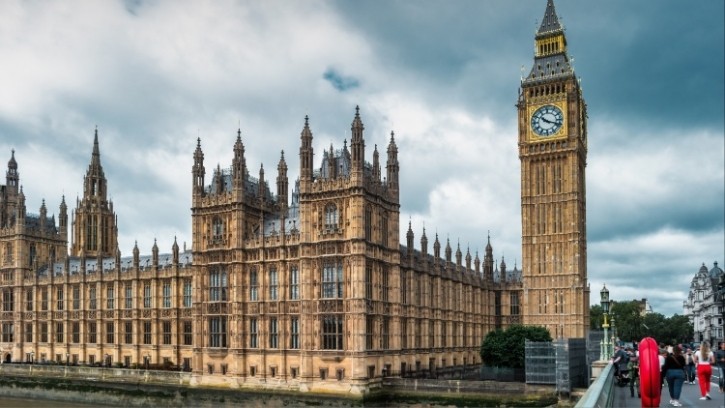News
Industry reacts to Labour landslide election victory

Sir Keir Starmer and the Labour party secured a total of 412 seats on election night and will return to Downing Street after 14 years in opposition, while the Conservatives fell back to 121 seats.
After former prime minister Rishi Sunak called a snap election in May 2024, the major parties have been setting out their visions during a whistle-stop campaign.
While a number of industry bodies within F&B have levied criticism at politicians for the lack of attention placed on food security and production throughout the campaign, there is hope that a new government can get to work quickly tackling some of the issues facing the sector.
'Food requires consistent government attention'
Commenting shortly after the result was announced, Food and Drink Federation (FDF) chief executive Karen Betts offered congratulations to Starmer and Labour party and urged the new prime minister to work closely with the industry to boost "investment, productivity, innovation and growth across our economy".
"There is huge scope to improve trade too, and to grow skills everywhere throughout the country, offering more people good jobs and great careers in a sector that’s central to everyone’s everyday lives," continued Betts.
"This will improve the resilience of our sector and food security in the UK, as well as contributing to food security in other countries. We want to work closely with government too to move further and faster towards a more sustainable food system, which achieves net zero and protects nature, while improving our environment by driving up recycling and establishing a successful circular economy.
"And we know we have a responsibility to work actively with government and others in helping people to adopt healthier diets and lifestyles, to help improve everyone’s overall health.”
Institute of Food Science and Technology acting chief executive Chris Gilbert-Wood added: "As outlined in our 'Asks for the Next Government', we believe that food and nutrition are integral to health, and as the sustainability and resilience of the the food supply chain has become increasingly critical; food should be considered a public good, requiring concerted and consistent government attention.
"These actions need to be underpinned by evidence-based principles and standards. We ask the new government to commit to establishing an inclusive and coherent national food policy, positively engaging in food education, building a flourishing environment for research investment, and developing an evidence-based and scientifically sound approach to sustainability for the food industry. The Institute would be delighted to support the new government in carrying out these requests."
‘Reset moment’
NFU President Tom Bradshaw described the election result as a moment of “reset” for British agriculture as the sector prepares to work with the incoming government.
“Labour’s manifesto recognised that food security is national security, but it is business confidence which forms the foundation of this,” Bradshaw said.
“With British farmers and growers ambitious for the future, what they – and the public – need are practical policies that revitalise farm business confidence and deliver on our shared mission of food security.”
Outlining the priorities for the NFU, Bradshaw called for the implementation of an increased “multi-year agriculture budget for the duration of the next Parliament”.
“This is about investing in the future of British farming – in homegrown food, in the environment and in renewable energy,” he added.
“In the coming days and weeks, we will be building on our strong engagement with Labour ministers to date to discuss essential policy solutions on key issues for our members. There are a number of policies within Labour’s manifesto which we will want to see actioned, for example ensuring the new Environmental Land Management Schemes work for all farm businesses, setting core standards for food imports and legislation to boost public procurement.”
To conclude, Bradshaw said that delivery of these priorities would serve as a win-win for Labour and the agricultural sector: “The public will get more of the British food they know and love, farmers and growers will have the confidence to build profitable, sustainable, resilient businesses – supporting economic growth and environmental delivery – and this new government will help to secure a safe supply of homegrown food in an increasingly volatile and uncertain world.”
'Great opportunity'
Meanwhile, Provision Trade Federation (PTF) director general Rod Addy said the organisation was ready to work with the incoming government along with the rest of the industry to “address the immediate obstacles and challenges to maximising UK growth”.
“These include food security and barriers to international trade, climate change impact and mitigation, the cost-of-living crisis, the health crisis and labour and skills shortages,” continued Addy.
“While the Government will face financial constraints, there are great opportunities for it to work in partnership with the pork, dairy and fish industries to bolster UK employment and GDP to secure common goals.”
British Meat Processors Association technical policy manager Nan Jones added: "Towards the end of the last parliament, it was frustratingly clear that government had stopped listening to and engaging with companies operating in the strategically important business of providing food for the nation. British food security had been overlooked by policy makers who were simply not taking a joined-up approach to immigration, skills, labour, trade barriers and a plethora or other issues that, together, are preventing the industry from functioning optimally.
"In preparation for a new government, BMPA has already been engaging with the Labour party to raise the issues our industry is most sensitive to, and over the next few days, we’ll find out who will be the people chosen to take on the ministries that have a direct bearing on meat processing. At that point, BMPA is ready to present a vision for the future of the British meat industry and the part our new political leaders need to play in Britain’s future food security."
Specifically referencing the debate around ultra-processed foods (UPFs), Modern Baker Superloaf co-founder Leo Campbell called for the new influx of MPs to embrace a more "progressive take" on the topic.
"Poor diet costs UK PLC £100bn annually, but it will only get worse if we double-down on the current, outdated guidelines embodied in the Food Standard Agency’s Nutrient Profiling Model that determines HFSS, traffic lights – they demonstrably don’t work," Campbell said.
"Leading scientists and UK entrepreneurs are already finding ways to radically improve the health impacts of UPFs, but they sit outside the binary NPM. Let’s embrace this innovation and establish UK PLC as a centre of excellence for nutritional science on a global stage."
In other news, Asda has recalled a variety of crisps due to a printing error on the packaging which left an allergen undeclared.
















